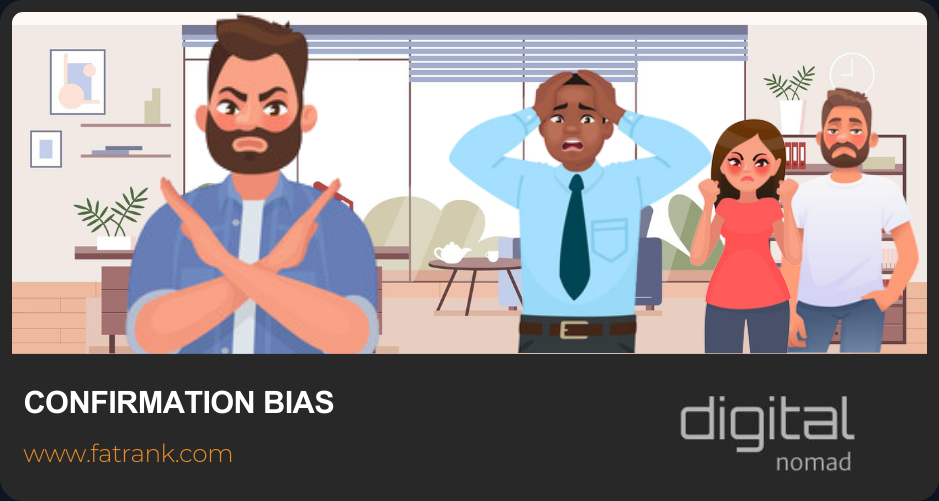
Confirmation Bias
Trying to argue with some people who use biases is a waste of time.
We all know that one person who can never lose in an argument and takes a small data set of information and claims this then to be 100% accurate.
These stubborn people use three types of bias which are information bias, selection bias, and confounding.
The confirmation bias influences people’s judgment and decision-making in many areas of life, so it’s important to understand it.
They go out of their way to find confirmation for what they want to be right or what they genuinely might believe to be true from personal experiences.
In our Confirmation Bias guide, we explain how people should stop basing all information as factual and always see there could be another side to a story.
Contents
What is Confirmation Bias?
Confirmation bias is the tendency to search for, interpret, favor, and recall information in a way that confirms or supports one’s prior beliefs or values.
When people suffer from the cognitive bias syndrome (aka Confirmation Bias) they search for a way that confirms their preexisting beliefs.
People then only remember the bits of information that confirm what they already thought.
How does confirmation bias cause errors in reasoning?
Confirmation bias is the tendency to seek out, interpret, judge and remember information so that it supports one’s pre-existing views and ideas.
Confirmation Bias is a specific and very common thinking error.
Confirmation bias can make people less likely to engage with information that challenges their views.
Confirmation Bias Examples
Here are some great examples of Confirmation Bias.
Left-Handed People Are More Creative Than Right-Handed
When a person believes left-handed people are more creative than right-handed people, they look for justification for this myth.
Whenever this person encounters a person that is both left-handed and creative, they place greater importance on this “evidence” that supports what they already believe.
Backlinks Do Not Work for SEO
Content writers spread misinformation that all you need to rank highly in Google is quality content.
As SEOs learn the industry and see these SEO myths it takes them years to find out this is incorrect and false.
But in the years of learning the trade they follow white hat content writers who provide a one-sided argument and some easy-to-rank case studies to back up their false claims.
What is the opposite of confirmation bias?
Falsification bias is the opposite of confirmation bias.
It means you actively look for evidence that disproves your point of view rather than confirms it, and using this bias is a good way to counter confirmation bias.
Falsification Bias is also a very common thinking error and both of these cognitive biases are not good traits to have.
What are the 3 types of confirmation bias?
There are three main ways that people display confirmation bias:
- Selective search
- Selective interpretation
- Selective recall
Summary
Be open to learning new things and never treat anything as 100% factual.
Whether it is the government sharing news articles on the war or politicians promising huge funding – question everything.
With the digital era, it has never been easier to share misinformation.

About FatRank
Our aim to explain and educate from a basic level to an advanced on SEO and Social Media Marketing.
